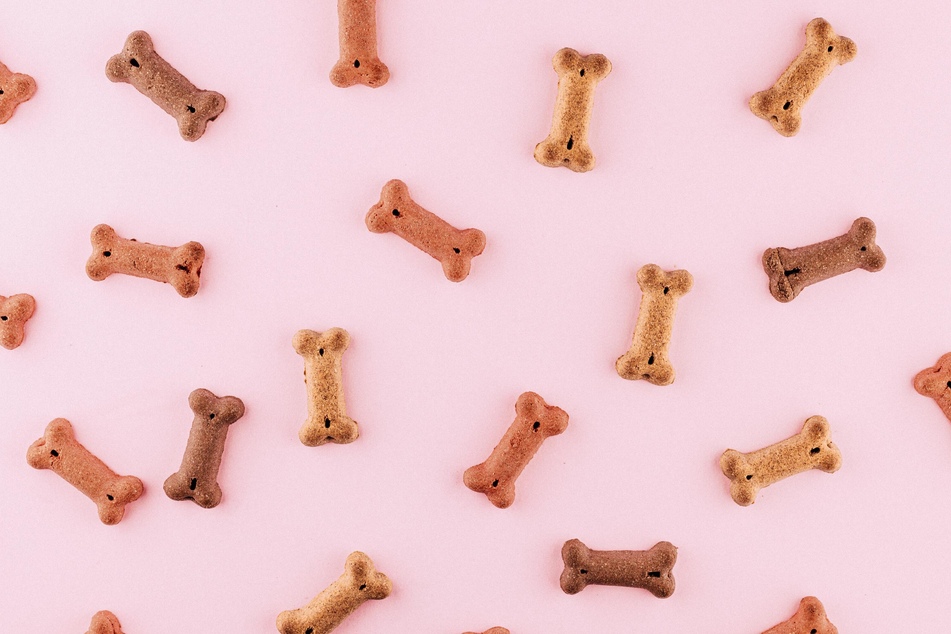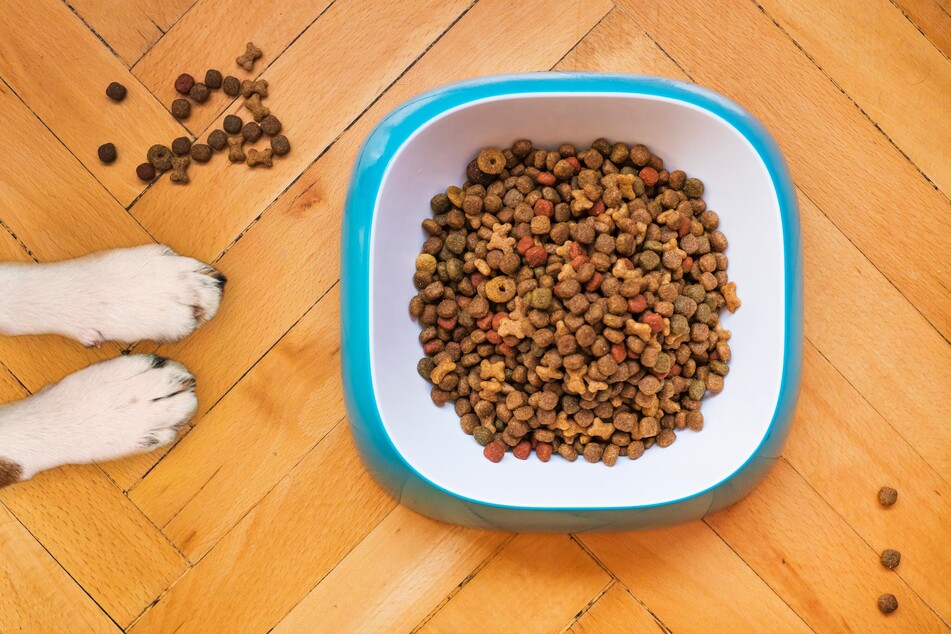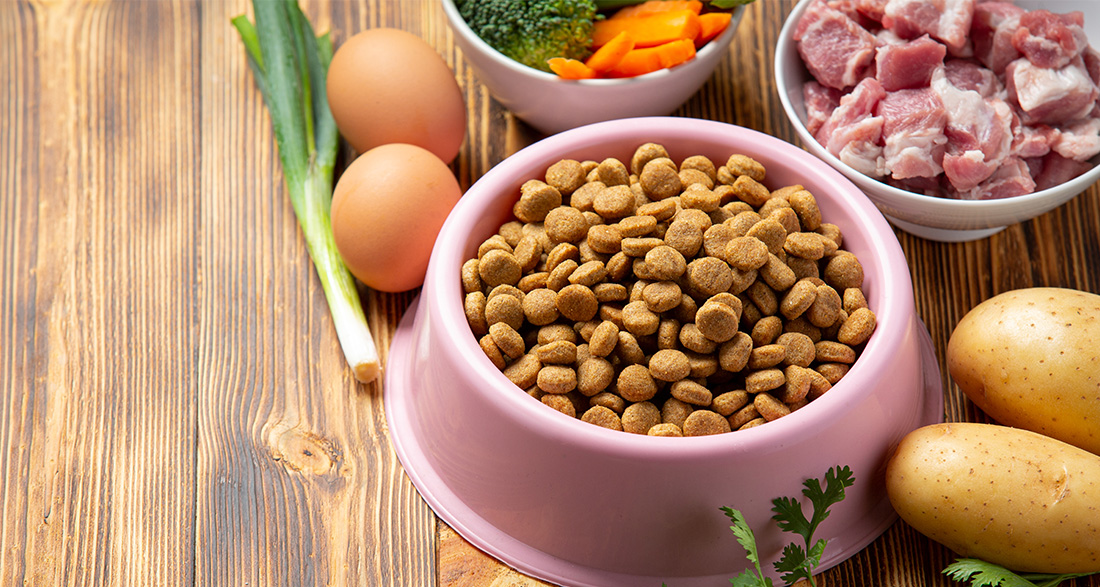When it comes to dog food, opinions differ. From low-carb to raw feeding and even vegan dog nutrition, every owner has a different idea of what is good for their pet. This article explains how to recognize good dog food and what to consider in terms of dog nutrition.
What is the best dog food? This question crosses every dog owner’s mind at least once in their life, and it elicits various answers.
Whether it’s vegan nutrition, home-cooked meals, grain-free dog food, or exclusively fresh meat: dog nutrition can be diverse.
In addition, individual characteristics of the dog, such as pre-existing conditions or food preferences, play a role. Does a dog hate dry food and prefer only treats? Or does it shun the water bowl after eating? Both can lead to health problems in the long run.
To keep our four-legged friends healthy and lively, some food components are particularly important. iHugDogs reveals, among other things, which nutrients a dog absolutely needs.
Important
If the dog shows any discomfort and does not tolerate the offered food, a veterinarian must be consulted immediately. The cause could be allergies, deficiencies, or even gastrointestinal tract diseases.
Quick Reader Info:
- Dogs need essential nutrients and minerals for survival.
- Dog food should contain water, proteins, vitamins, fats, minerals, and carbohydrates.
- Fiber is good for the dog’s digestion.
- Each dog has individual food preferences.
- Pre-existing conditions, allergies, and intolerances determine the right food.
Finding the Right Dog Food
Finding good dog food is not that easy. However, whether it’s dry or wet food depends not only on a dog’s taste but also on vital ingredients. If the dog cannot tolerate commercial dog food, alternatives such as home-cooked meals, insect-based dog food, or raw feeding can be considered.
Good dog food should also consider the following points:
- Age
- Weight
- Health condition

The Most Important Ingredients in Dog Food
What do dogs eat? Although dogs are descendants of wolves, their eating habits have changed over time. While both animals are carnivores, the dog’s digestion has evolved into that of an omnivore through everyday coexistence with humans. Therefore, proteins alone are no longer sufficient for a dog’s health.
Dog nutrition for a healthy, adult dog should include:
- 50 to 55 percent carbohydrates
- 40 to 45 percent protein
- Five percent fats
- Three to five percent fiber
- Vitamins and minerals as needed
Proteins are Essential for Healthy Dog Nutrition
Proteins are indispensable for a dog’s health. The amino acids contained in them are needed by the dog’s body to maintain its life functions. However, not all meat is equally well-digested.
Especially digestible protein sources are:
- Muscle meat
- Fish
- Heart
- Liver
- Dairy products (only in small doses)
It’s all about the right balance:
Too many proteins lead to bloating and gastrointestinal problems in dogs.
But if they get too few proteins, it can cause liver diseases, poor growth, and increased susceptibility to infections.
Fats for a Healthy Dog Life
Fats have a similarly high importance in dog nutrition as proteins.
Here are some of the positive effects:
- Metabolism is stimulated.
- They provide energy.
- Fats are carriers and metabolizers of Vitamin D, A, E, and K.
Dog food typically contains fats such as salmon oil, goose fat, or beef tallow. However, dry food may also contain plant oils such as sunflower or rapeseed oil. Fats should not be under- or overdosed either.
Too much fat in dogs can lead to liver and pancreatic problems. Under-supply of fats, on the other hand, affects the dog’s immune system, metabolism, and energy balance.
Carbohydrates
Potatoes, corn, and rice are often added to dog food as an additional source of energy. It is important to focus on valuable carbohydrates like complex sugars and avoid simple sugars like wheat flour.
Although many opt for grain-free dog food, dogs need carbohydrates for their performance and digestion. Highly digestible and nutritious sources of carbohydrates include oatmeal.
Vitamins

Fat-soluble and water-soluble vitamins are absorbed by dogs through their diet. They are essential for a strong immune system, healthy eyes, and shiny fur.
- Fat-soluble vitamins: A, D, K, and E.
- Stored in the liver and processed with the help of fats.
- Water-soluble vitamins include vitamin C and B-vitamins.
- Quickly excreted from the body.
Commercial dry and wet dog food usually already contains all necessary vitamins in sufficient quantities.
Therefore, additional vitamins in supplements should only be used in alternative dog nutrition such as raw feeding or home-cooked meals.
Caution
Does your dog have pre-existing conditions, is a puppy, or a senior? Additional vitamins and minerals from supplements can be beneficial in such cases. Always consult a veterinarian!
Water as an important part of Healthy Dog Nutrition
Regular drinking is essential for a dog’s health. While wet food already contains a lot of moisture, a filled water bowl should accompany every dry food bowl.
Dogs should consume 30 to 100 milliliters of water per kilogram of body weight daily.
This is crucial because dogs lose water not only through urine and panting but also through sweating on their paw pads.
The exact water intake also depends on the dog’s age and potential illnesses. Ensure that your dog always has access to fresh water, and clean the water bowl daily.
Minerals
Minerals include calcium, sodium, potassium, magnesium, phosphorus, as well as trace elements like iron or zinc. Just like vitamins, regular intake of minerals is equally important in dog nutrition.
But what are each element helpful for?
- Calcium, phosphorus: Bones, teeth, blood clotting
- Magnesium: Nerves
- Potassium: Cardiovascular system
- Zinc: Immune defense
- Iron: Blood formation and cell respiration
As with vitamins, the right combination is crucial here too! Providing large amounts of minerals to a dog can have toxic effects and cause diseases.
Fiber

You’ve heard of terms like raw fiber or fruit cellulose, but you’re not quite sure what they mean? Besides carbohydrates, fiber is also important for a dog’s digestion.
Although dogs cannot metabolize fiber, it aids in regular digestion and supports the intestinal bacteria flora.
Therefore, dog food often contains fiber-rich substances like wheat bran or feed cellulose. The latter is also suitable for dogs with diabetes or allergies.
Conclusion: It’s about the Right Dosage in Proper Dog Nutrition
Ingredients in dog food play a significant role in its health. For most components, healthy dog nutrition depends on the right dosage.
If unsure about the amounts of vitamins, minerals, and others your dog needs, it’s better to seek advice from a veterinarian. This ensures the best foundation for a safe and healthy dog nutrition for our four-legged friend.


